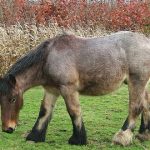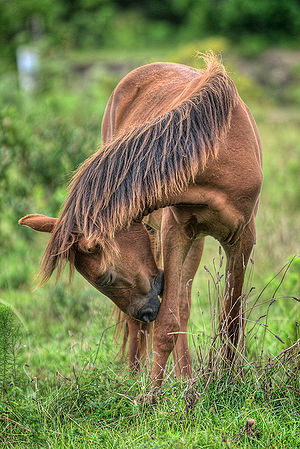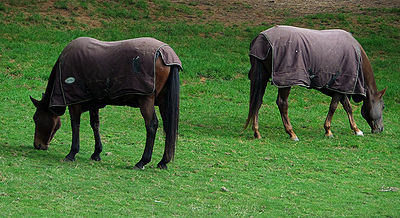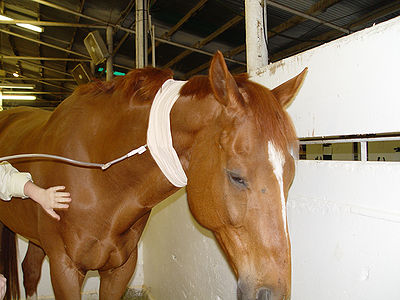Horses are generally able to tolerate cold weather. But they still need some sort of shelter to retreat to when it’s windy and temperatures drop below 10 degrees Fahrenheit. The layers of the horse’s coat act to insulate the body. Digesting forage, mainly hay, also produces body heat. A horse’s winter coat begins to appear […]
Horse Health
Owning a horse is a commitment to take care of all needs. It’s up to every horse owner and horse lover to ensure their health and well-being. We hope these articles help you keep your horse in the pink. Please remember that these articles are not meant as substitutes for your veterinarian. If your horse is ill, please see your vet asap.
Here’s the list!

First Drug to Treat Cushings Disease in Horses
The FDA announced approval of the drug Prascend to treat the clinical signs in horses with Equine Cushing’s Disease. In horses, Cushing’s Disease is known as Pituitary Pars Intermedia Dysfunction (PPID). According to the findings of a recent study by Australian and United Kingdom researchers, PPID usually affects horses above the age of 15. Older […]

Horses’s Hair
Your horse’s coat can be compared to a book with many stories. The state of your horse’s hair can tell you of existing problems. Hair grows from skin follicles. Each strand is made up of the medula (center), cortex (middle) and cuticle (outer layer). Horses have 3 types of hair on their bodies. The hair […]

FEC Testing for Horses
FEC – Fecal Egg Count – is being recommended to horse owners instead of regular deworming. Testing for fecal egg count can benefit owners as well as their horses. FEC has shown to save owners money. It benefits the horses by avoiding unnecessary deworming. It will also maintain the potency and success of dewormers. Research […]

Potomac Horse Fever
2013 In central Virginia, several cases of Potomac Horse Fever (PHF) were reported. There are also known cases in parts of South America, Europe and India. PHF is found throughout North America and Canada where 3 provinces have had cases of PHF. PHF was formerly known as Equine Monocytic Ehrichiosis or Equine Ehricial Colitis. PHF […]

Sensitivity Of Horses To Insect Bites
Scientists at the Wageningen University in The Netherlands are working on a cure for horse insect bite hypersensitivity. Their research has led them to clone certain proteins in insects in the hope that these easily collected proteins can produce a cure. As a result of current testing, scientists have developed an accurate test to diagnose […]

Deworming Horses Made Easier
A while back, de-worming a horse was a job for the veterinarian. A tube was passed through the horse’s nose into the stomach. A liquid de-wormwer was then pumped through the tube. The latest de-wormers (called anthelmintics) made by drug manufacturers can be administered by horse owners. They require simply squirting a dose of gel […]

New Test for Lyme Disease in Horses
2013 Detecting Lyme disease in horses has been difficult since many horses don’t show symptoms until months after being infected. But in 2012, researchers at Cornell University’s Veterinary School developed a test which can detect antibodies as early as 2-4 weeks after the horse has been infected. The test also indicates the stage of Lyme […]

Equine Botulism Update
Botulism is produced by Clostridum botulinum and is among the most lethal toxins known. There are 7 known strains of botulism (A-G), A and B being the most common in horses. Type C is caused by decaying animals in feed. Some types cause the disease in birds and cattle as well as horses . Some […]


